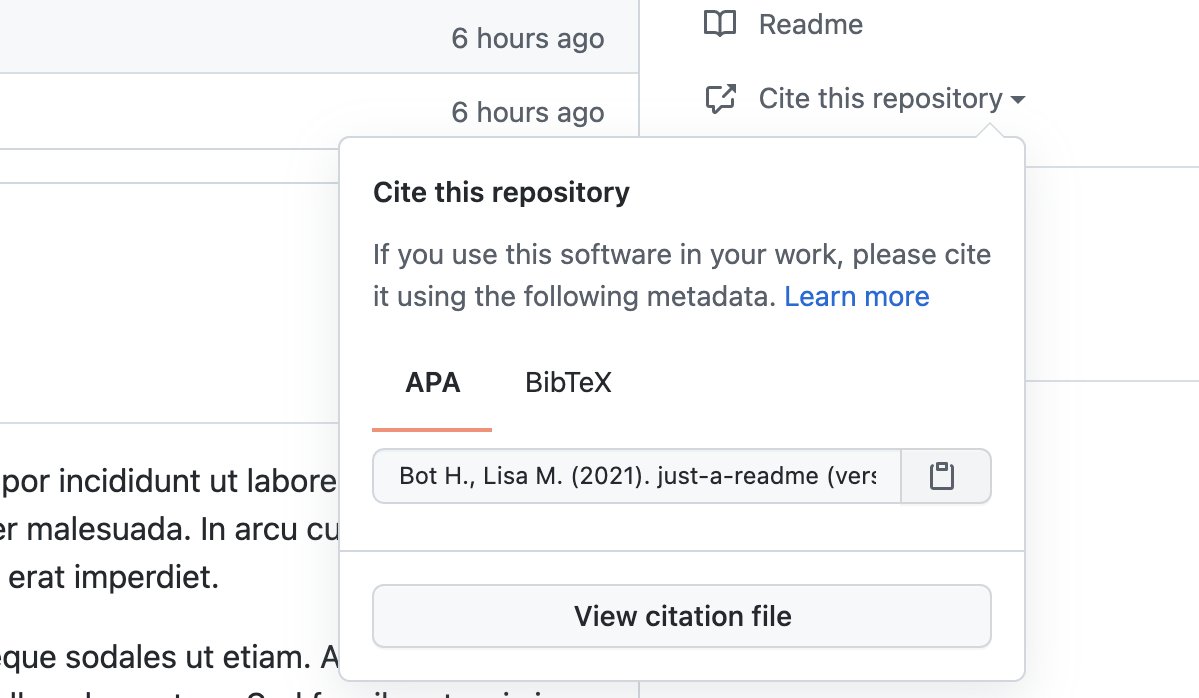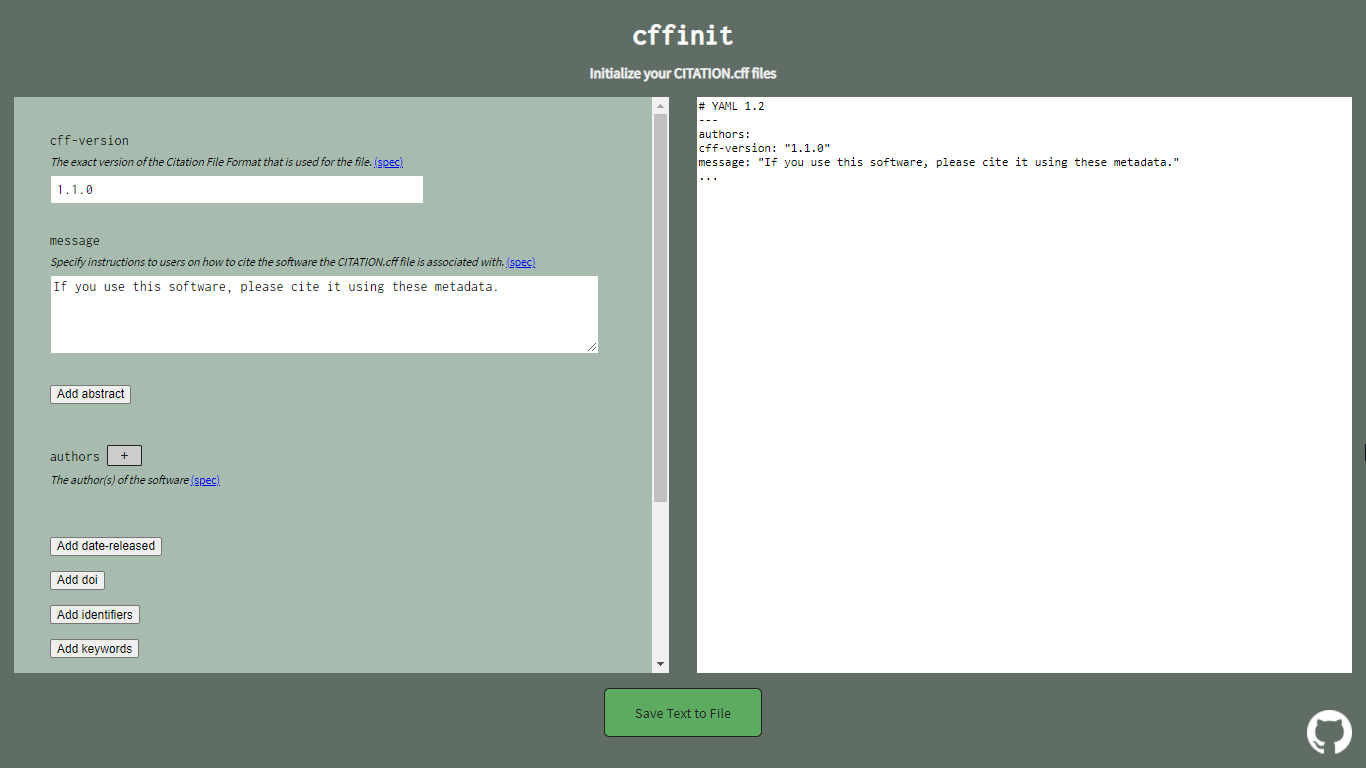
By Bella Ratmelia, Librarian, Data Services
In July 2021, GitHub CEO Nat Friedman announced via Twitter that GitHub now comes with built-in citation support, designed to make it more convenient for others to cite a software project in GitHub, and in turn make it easier for developers, researchers, and scientists who created those software to receive acknowledgement of their work.
This feature will allow you to add a “Cite this repository” button to your GitHub repository.

A citation added this way is also supported by Zotero and will be imported into a Zotero library via Zotero’s Connector Browser plugin.
To activate this feature, simply create a CITATION.cff file and put it on the default branch of your GitHub repositories. The .cff file is a simple plain text file that’s formatted in a certain way and contains information about a repository such as title, authors, version, url, and DOI. You can create the file using plain text editors, or with the help of handy online formatters such as cffinit (CFF Initializer).

You may notice that one of the options is to add a DOI or digital object identifier, but why would you want to do that?
Creating a DOI will help make your datasets/code/files more discoverable and may even allow them to be highlighted in citation indexes like Scopus (https://blog.scopus.com/posts/scopus-makes-strides-in-data-linking) next to papers that use them. How do you get a DOI for your software project in GitHub? One way is to deposit your data into the SMU Research Data Repository - RDR which will issue a DOI for your files. Creating a DOI will help make your datasets/code/files more discoverable and may even allow it to be highlighted in citation indexes like Scopus next to papers that use it.
Connecting GitHub with SMU RDR
Connecting your GitHub account to the SMU RDR ensures that the changes and updates in the repositories are reflected in your SMU RDR account automatically (once you publish them).
You can follow the steps outlined in this guide from Figshare (which is the system hosting the SMU RDR). Once integrated, you can sync all (or a select few) of your repositories and obtain a separate DOI for each of them.
Whether you choose to upload your files from GitHub this way or manually, you will receive a DOI that can be used for citation purposes.

Once you obtain this DOI, you can use this to supplement the info needed for the CITATION.cff file.
Useful links
If you are wondering how to get DOIs or other permanent IDs, or have questions or comments about this article, feel free to reach out to us at library [at] smu.edu.sg.